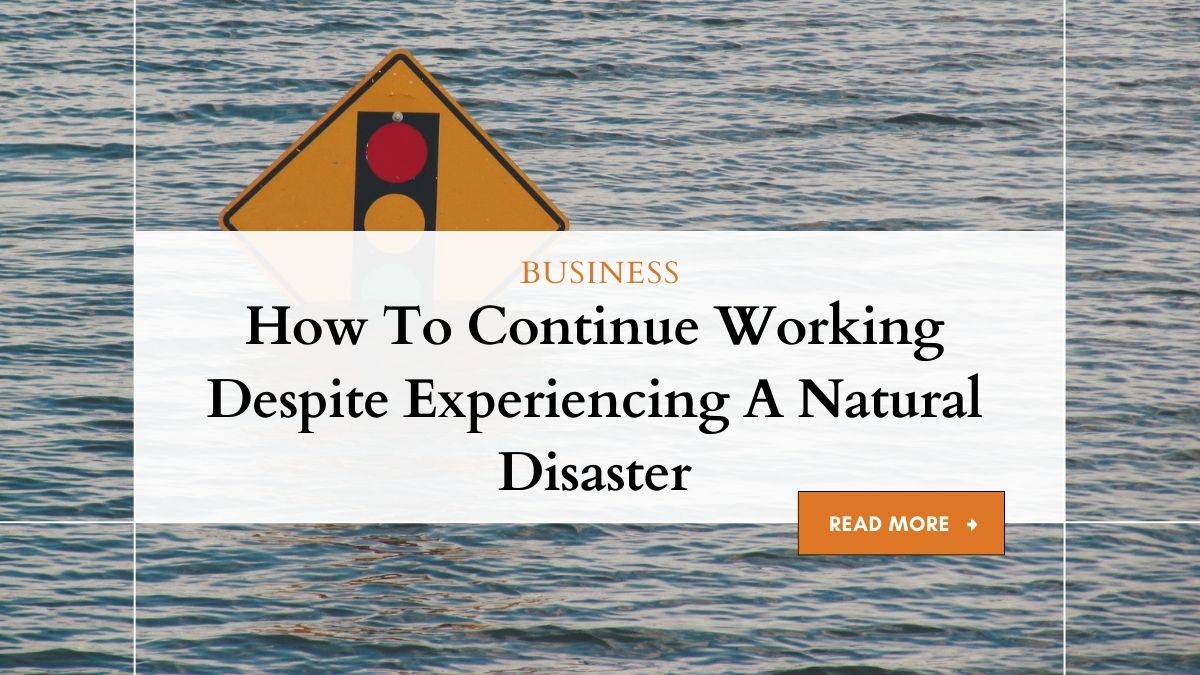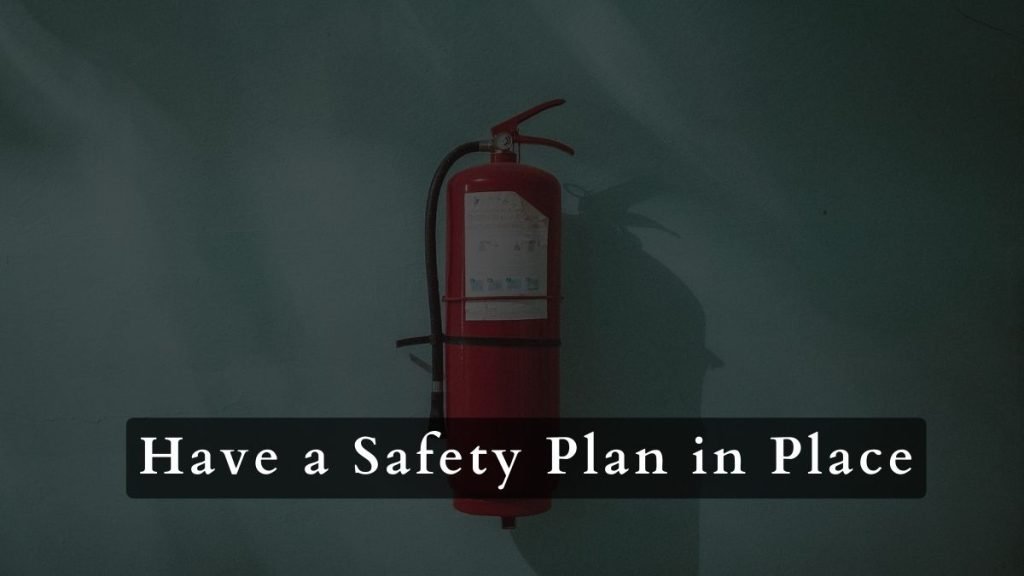
Natural disasters can be devastating, both physically and emotionally. From hurricanes to earthquakes, floods to fires, natural disasters can cause immense destruction in a matter of minutes.
But even when it feels like all hope is lost, there are still ways for you to keep working despite the chaos that surrounds you.
By staying focused and keeping your goals in mind, you can use this difficult time as an opportunity to grow and become more resilient than before.
Whether it’s finding alternative sources of energy or adjusting your work hours around the disaster’s timetable – there are plenty of strategies available that will help you stay on track with your projects while dealing with the aftermath of a natural disaster.
Also, you can able to know,
Finding Alternative Sources of Energy
The most immediate step after a natural disaster is to find alternative sources of energy.
Depending on the severity and extent of the damage, power outages can last for days or even weeks, leaving you without the electricity needed to work.
This is when it’s time to get creative with your energy sources. If possible, switch to a generator or a battery-powered device and if not, look for nearby sources of power such as solar cells or even car batteries.
Namely, being able to access emergency power sources will help you keep working without hindering the progress of your projects. While it may seem that you’re wasting valuable time in finding alternative ways to power your devices, it will pay off in the long run since you won’t have to worry about losing important data due to an unexpected power outage.
Adjust Work Hours Around the Disaster’s Timetable
Another way to stay productive during a natural disaster is to adjust your work hours around the disaster’s timetable.
If you live in an area that experiences hurricanes or blizzards, for example, plan ahead and make sure that you have enough time to get home before the storm hits.
This will allow you to continue working productively during normal business hours, and also avoid any potential safety risks that may arise due to the natural disaster.
Moreover, if the natural disaster has caused a disruption in your daily routine, try to create a new one that will help you stay focused and productive.
For instance, move any meetings or deadlines further back so that everyone affected by the disaster can have enough time to recover and get back on their feet.
While most people will be more than happy to accommodate, it’s important to remember that everyone may not have the same resources or levels of resilience.
Have a Safety Plan in Place

Lastly, it’s important to have a safety plan in place before a natural disaster occurs.
Know where the safest areas of your home and neighborhood are and make sure that you have essential supplies stocked up ahead of time such as food, water, first aid kits, and other necessary items.
Additionally, keep communication channels open with your family and colleagues to ensure that you are all aware of each other’s whereabouts.
It can be difficult to stay focused on your work when your safety is at risk, so taking the necessary steps ahead of time will help you stay productive and safe during a natural disaster.
You can also look into natural disaster insurance or other coverage options to make sure that you are prepared financially, should a natural disaster occur.
Take Breaks and Remain Positive
One of the most important tips for staying productive despite a natural disaster is to take breaks and remain positive.
During these times of crisis, it can be easy to become overwhelmed and discouraged, but this will only make it harder for you to stay focused on your work.
Therefore, try to do something relaxing during breaks such as listening to music or playing a game – anything that can help you relieve stress and take your mind off the disaster.
Additionally, staying positive is essential; focus on what you have instead of what you’ve lost, and be grateful for all the help that is available.
A lot of people have been affected by natural disasters and supporting one another during these difficult times can make all the difference.
Stay Focused and Set Goals
It’s important to stay focused on your tasks and set realistic goals for yourself.
While it can be easy to get overwhelmed by the chaos surrounding a natural disaster, try to remain positive and use the experience as an opportunity to learn and grow.
Set smaller, achievable goals that will help you stay on track with your projects and remind yourself of why you’re working in the first place.
It can be a difficult and trying time, but by staying focused and keeping your goals in mind, you can use this experience to become more resilient than ever.
Have Spare Supplies
While not all natural disasters can be predicted, it’s important to be prepared for whatever Mother Nature throws your way.
Have a few spare supplies on hand such as flashlights, candles, and canned food – anything that could potentially help you get through the disaster.
Having these items ready will not only help reduce stress during an emergency but will also give you the peace of mind that you’re ready to face whatever comes your way.
Another important tip is to be aware of any emergency plans or evacuation routes that could help you get to safety quickly.
Make sure you’re familiar with these ahead of time so that, if needed, you can get out of the disaster zone as soon as possible.
Dedicate a Certain Amount of Time to Work
Finally, dedicate a certain amount of time each day to work. This will help you stay focused and productive despite the chaos that may be surrounding you.
Set a schedule and stick to it – even if that means working in short bursts or only dedicating an hour or two each day to your projects.
This way, you can ensure that your work is still progressing and that you’re keeping on top of deadlines.
If necessary, you can also ask for help from your colleagues or even hire a temporary assistant to keep things running smoothly.
Don’t miss: How to Get a PO Box for Free
The bottom line
Natural disasters can be devastating and overwhelming experiences. But with a little creativity and a positive outlook, it is possible to continue working despite the chaos that surrounds you.
By finding alternative sources of energy, adjusting your work hours around the disaster’s timetable, taking breaks and remaining positive, staying focused on your tasks and setting realistic goals for yourself, and having spare supplies ready at all times – you can use this experience as an opportunity to become more resilient than ever.










